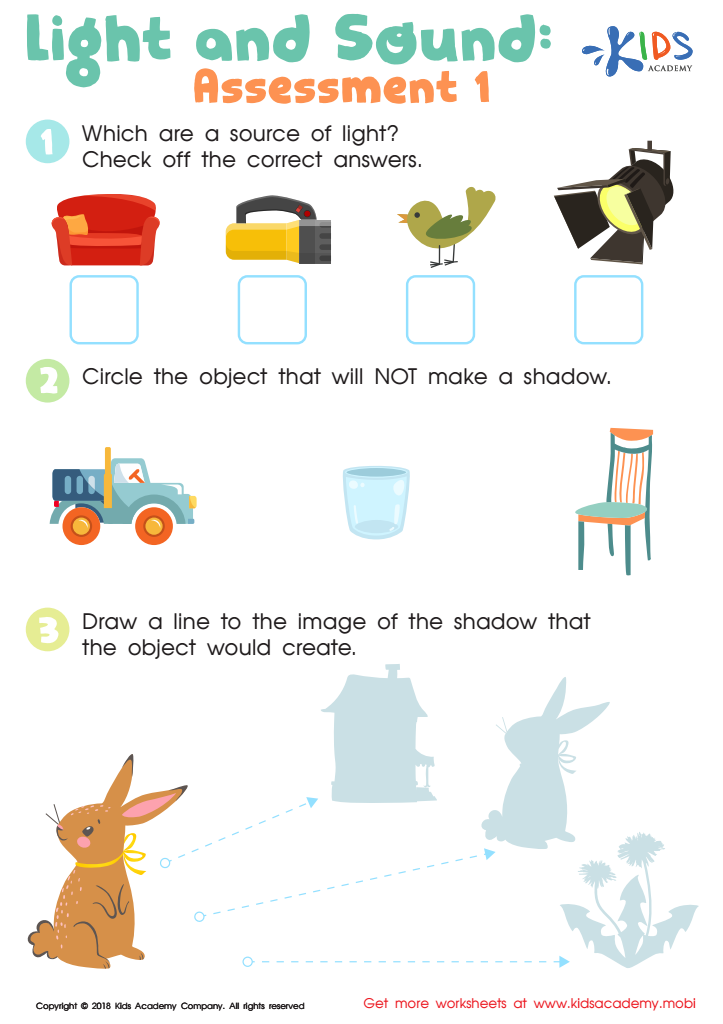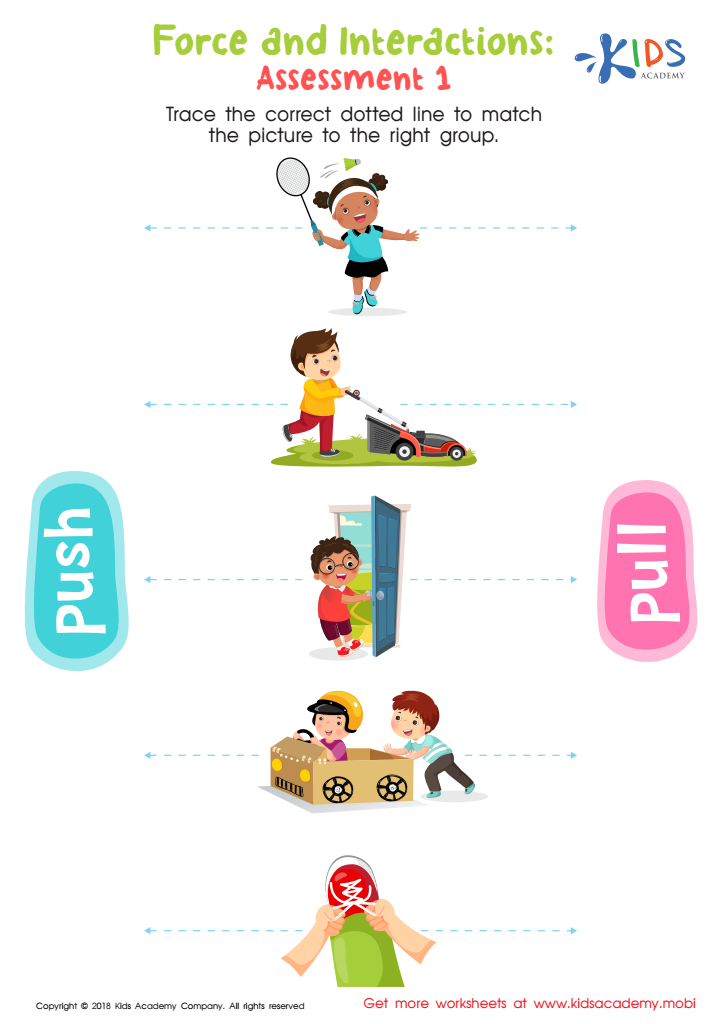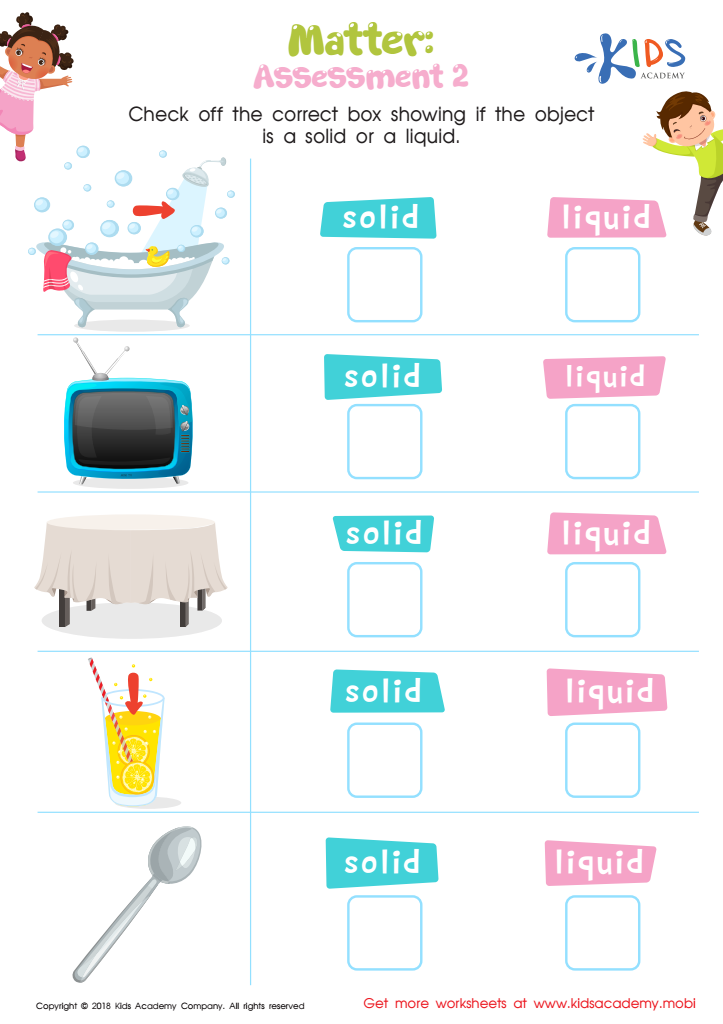Physical Science Worksheets Activities With Answers for Ages 6-9
6 filtered results
-
From - To
Discover engaging Physical Science worksheets designed for children aged 6-9! Our comprehensive collection features a variety of activities that make learning fun and interactive. Each worksheet focuses on key science concepts while promoting critical thinking and problem-solving skills. With detailed answer keys included, educators and parents can easily support their child's learning journey. Whether it's exploring the properties of matter, understanding simple machines, or investigating energy sources, these worksheets are tailored to capture young learners' interest. Ideal for classrooms or at-home learning, our printable resources ensure that students build a solid foundation in physical science while enjoying the process!


Matter: Assessment 1 Worksheet


Force and Interactions: Assessment 1 Worksheet


Light and Sound: Assessment 1 Worksheet


Light and Sound: Assessment 2 Worksheet


Force and Interactions: Assessment 2 Worksheet


Matter: Assessment 2 Worksheet
Parents and teachers should prioritize physical science activities for ages 6-9 due to the critical role such experiences play in a child's development. At this age, children are naturally curious and eager to explore the world around them. Physical science activities, which can include simple experiments and hands-on projects, align perfectly with this curiosity and help nurture a love for learning in science.
Engaging in physical science activities fosters essential skills such as critical thinking, problem-solving, and observation. It enables children to ask questions, hypothesize, test their ideas, and learn to draw conclusions from their observations. These skills are not only foundational for advanced scientific concepts later but also essential for everyday life.
Moreover, hands-on activities can make science feel relevant and exciting, often leading to better retention of information compared to traditional rote learning methods. They can also promote teamwork and communication skills when children work together on projects.
Finally, providing guided answers enhances understanding. It encourages children to reflect on their findings, deepening their grasp of scientific principles. In essence, fostering early engagement with physical science sets the stage for future academic success and a lifelong interest in exploration and discovery.
 Assign to My Students
Assign to My Students





















